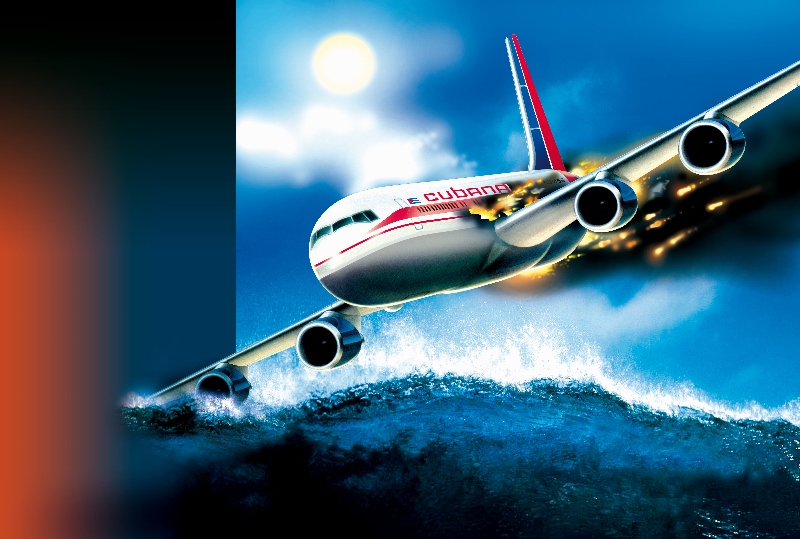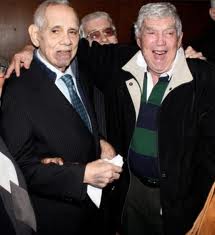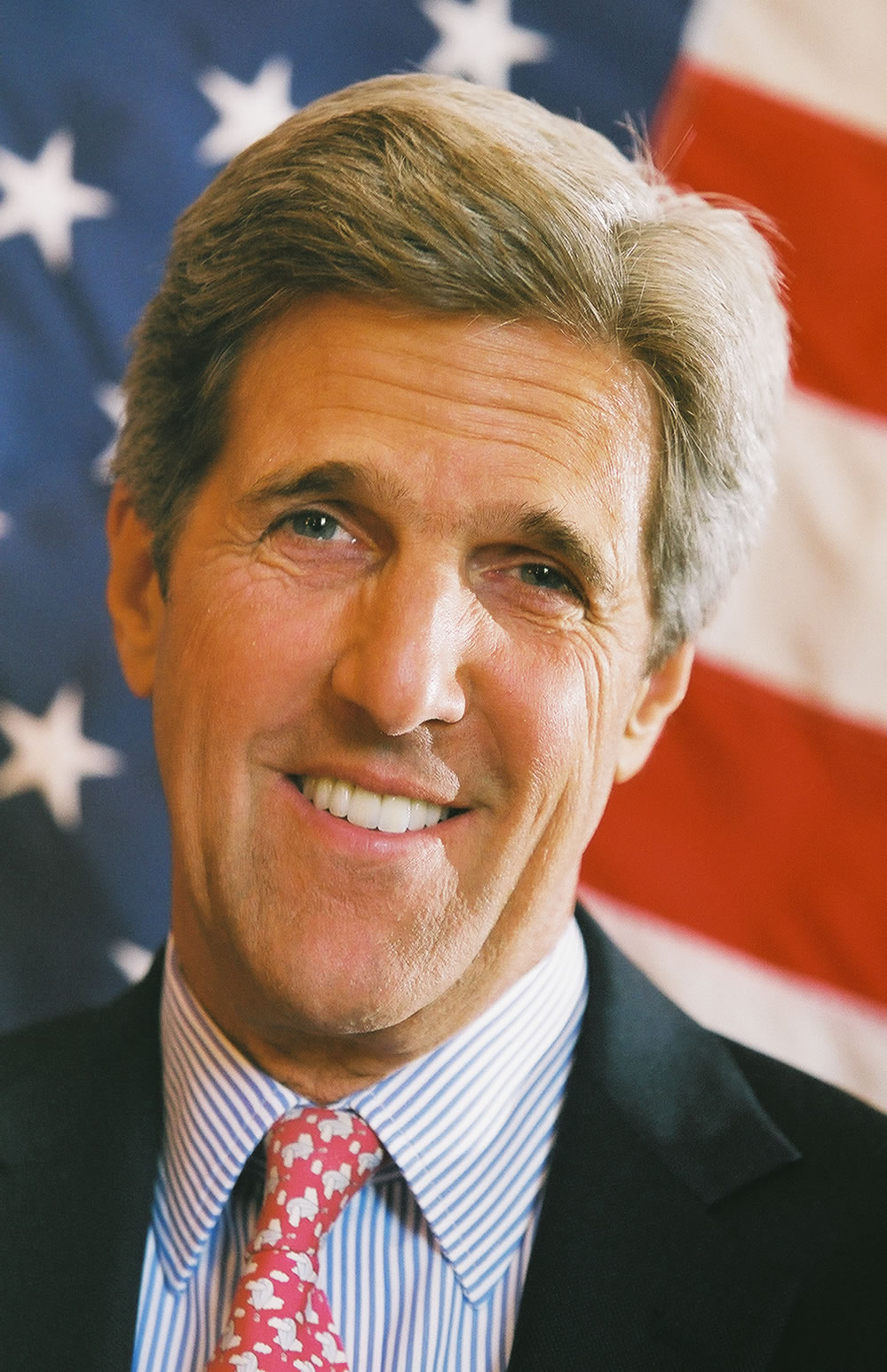The Terrorist List, and Terrorism as Practiced Against Cuba

Of all the components to the United States hostile strategy against Cuba, nothing raises the ire of the Castro government more than its inclusion on the State Department’s list of states that sponsor terrorism. The designation is seen by Havana as an impediment towards improving relations and as a cruel hypocrisy that provides political cover for Washington to justify the imposition of economic penalties along with the perpetuation of anti-revolutionary propaganda.
There is an opportunity to eliminate that stumbling block in the next few weeks, if newly appointed Secretary of State John Kerry decides to recommend Cuba’s deletion from the list to President Obama. Kerry has until the release of the State Department’s annual terror report on April 30 to make the determination of whether Cuba will remain on the terrorist list. High ranking Cuban officials are closely watching this development, indicating the removal could offer an opportunity to re-engage with the United States. [1]
The history of Cuba’s controversial inclusion goes back to 1982, the same year Iraq was taken off the list by the Reagan administration. Besides Cuba, only Sudan, Iran, and Syria continue to be labeled as state sponsors of terrorism. North Korea was dropped in 2008, while Pakistan, long the home of Osama Bin Laden and recognized as a haven for Islamic terrorists, has never been considered. Saudi Arabia, where the majority of the 9/11 terrorists came from, is looked upon as a staunch ally of the United States.
There are numerous reasons why the Castro government finds its insertion on the list so galling. First are the real economic consequences to the designation. By law the United States must oppose any loans to Cuba by the World Bank or other international lending institutions. Obama administration officials have been using Cuba’s inclusion to make it increasingly difficult for Havana to conduct normal banking transactions that involve U.S. financial establishments, regardless of which currency is being used. Furthermore, the United States has imposed an arms embargo against all parties placed on the list (which the Castro government has experienced since the triumph of the Revolution) as well as prohibiting sales of items that could be considered to have both military and non-military dual use, including hospital equipment. For example, the William Soler children’s hospital in Havana was labeled a ‘denied hospital’ in 2007 by the State Department, bringing with it serious ramifications. Various medicines and technology have become impossible to obtain, resulting in the deaths of children and the inability of staff to properly deal with a variety of treatable conditions. [2] For Cuba, these restrictions are additionally damaging as the island continues to suffer from the comprehensive embargo the United States has imposed since the early 1960s.
On an emotional level, Havana has long drawn attention to the double standard that permits Washington to label others as a terrorist state, all the while ignoring its own culpability in the multiple acts of terror that have been responsible for the deaths of thousands of innocent Cuban civilians. This relatively unreported history stretches back to the early months following Castro’s victory over the Batista regime, when the United States was determined to eliminate the Cuban revolution not only through economic and political means, but with violence. Operation Mongoose, a program developed by the State Department under the overarching Cuba Project, coordinated terrorist operations from the period following the failed Bay of Pigs invasion in April 1961 to the October missile crisis 18 months later. During this time State Department officials provided logistical and material support to violent anti-revolutionary groups carrying out terrorist activities on the island. The terrors included torturing and murdering students who were teaching farmers to read and write, blowing up shoppers at Havana’s busiest department stores, bombing sugar cane plantations and tobacco fields, killing Cuban fishermen and the innumerable attempts to assassinate Fidel Castro and other top government officials. [3] Historian Arthur Schlesinger reported in his biography of Robert Kennedy that Operation Mongoose was formulated under the Kennedy administration to bring “the terrors of the earth” to the Cuban people. [4] It has been called one of the worst cases of state sponsored terrorism of the 20th century. [5] When Operation Mongoose ended, violent anti-Castro groups based in South Florida, such as Alpha 66 and Omega 7, took over operations, often with the tacit approval and knowledge of local and federal authorities. In 1971, the village of Boca De Samá on the northeast coast of Cuba was attacked, leaving two civilians dead and a dozen more injured. Alpha 66 continues to claim credit for this act of terrorism on their website. [6] A series of biological agents were purportedly introduced into Cuba in the 1970s, harming a number of plants and animals. These biological attacks included an outbreak of swine fever that killed a half-million pigs. Perhaps the worst case was the1981 epidemic of Dengue 2, totally unheard of in Cuba prior to this period. More than 300,000 people were affected within a six-month period. An estimated 102 children died as a result of the disease. Cuban-American Eduardo Arocena, former member of Omega 7, testified in 1984 that he travelled to Cuba in 1980 to “introduce some germs” into the country to “start the chemical war,” —as reported by The New York Times. [7] One of them was Dengue 2.

Havana and Varadero tourist facilities were targeted during a 1997 bombing campaign, resulting in the death of Italian-Canadian businessman Fabio di Celmo when a bomb exploded in the lobby of the Hotel Copacabana. Dozens were injured before the explosions ended with the arrests of a group of Salvadorians who later testified they were being paid to plant the bombs. Claiming responsibility for the campaign was Luis Posada Carriles, a Cuban-American long known for his violent actions against the Castro regime. He bragged to a The New York Times reporter that the intent of the bombings was to discourage tourists from visiting the island just as Cuba was opening up the industry following the collapse of the Soviet Union. [8]
In addition to the tourist attacks, former CIA agent, Posada Carriles, is infamously known for his alleged masterminding of the bombing of Cubana Airlines flight 455 in October 1976, killing all 73 on board. The incident remains the second worst act of air terrorism in the Americas, exceeded only by the attacks on 9/11. Evidence points to the involvement of Posada Carriles and fellow Cuban Orlando Bosch with organizing the crime, based on extensive U.S. documentation. [9] Bosch passed away in his Florida residence a few years ago, while Posada Carriles continues to live unfettered in Miami, despite requests for his extradition from the Cuban and Venezuelan governments. Cuba’s demands for Posada Carriles to be brought to justice in part rest on former President George Bush Jr.’s own statement in 2003, “Any person, organization, or government that supports, protects, or harbors terrorists is complicit in the murder of the innocent, and equally guilty of terrorist crimes.” [10] The Cuban government was motivated by such acts of terrorism to send intelligence officers to Florida to infiltrate violent anti-revolutionary organizations. The effort led to the arrest and conviction of five Cuban nationals in 1998 on charges of conspiracy to commit espionage. Known as the Cuban Five, the release of these agents, who were attempting to prevent further terrorist attacks on their country, continues to be a high priority with Havana and adds another layer of complexity to rapprochement between the two countries. Those close to the Cuban Five episode have always been troubled by the probity of the whole affair and whether the entire trial was fixed by U.S. legal authorities as well as intelligence officials.

Since 1982, an assortment of rationales has been posited to retain the island’s designation as a state sponsor of terrorism, mostly based on expedient political considerations. Initially, it was the country’s support for revolutionary communist organizations in the third world. When Castro himself renounced backing for insurgents after the collapse of the Soviet Union in the early 1990s, nothing changed. Two long-standing justifications rest on Cuba’s permission to allow alleged Basque ETA terrorists to take up residence on the island in the 1980s, and the harbouring of fugitives from American justice. What remains unsaid is the agreement between the then-Spanish government of Felipe Gonzalez and Cuba to accept members of the separatist ETA Homeland and Freedom organization. [11] Of the fugitives facing charges in the United States, some have lived in Cuba since the 1970s. While an extradition treaty between Cuba and the United States that was signed in 1904 has never been abrogated, the treaty is considered non-operative and requests are handled on a case by case basis. Despite this informal status, the Cuban side declared in 2005 that safe haven would no longer be provided to American fugitives. Cuba continues to be interested in re-establishing the formal status of the extradition agreement as a means to secure the return of Posada Carriles and others it considers terrorists residing in the United States.
Another pretext for maintaining Cuba on the list is that some members of the Revolutionary Armed Forces of Colombia (FARC) rebel group have been living in Cuba. This argument was considerably weakened last year when peace talks began in Havana between the Colombian government and the FARC. Undoubtedly, the most tenuous rationalization followed the terrorist attacks on 9/11 when the United States claimed Cuba was not sufficiently supportive of its war on terror, declaring the Castro government had undertaken little effort to track or seize terrorist assets. A 2004 State Department report asserted that “Cuba continued to actively oppose the U.S.-led coalition prosecuting the global war on terrorism.” [12] This reasoning has long been undermined by Fidel Castro’s condemnation of the 2001 attack, pointing to his own country’s experiences in his call to bolster efforts to eradicate all forms of terrorism.
Currently, an unrelated matter has been used to justify non-engagement and for Cuba’s retention on the U.S. list of terrorist nations. American citizen Alan Gross was jailed three years ago in Cuba for bringing in illegal telecommunication equipment under a program financed by the United States Agency for International Development (USAID)–a government organization supportive of regime change on the island. Obama officials have repeatedly stated no improvement in relations can be achieved with Gross in jail. Conversely, the Cuban side indicated there might be an opening in the case if Havana were taken off the list. Chris Van Hollen, Democrat from Maryland, traveled to Havana recently, returning with expressions of hope for an improved relationship with Cuba under the condition that, “the first step needs to be resolving Alan Gross’s situation.” [13]
There is no sound argument for Cuba’s continued description as a state sponsor of terrorism. Secretary of State Kerry has in his hands a method to end the moral duplicity and possibly help kick start engagement. Kerry, an outspoken critic of what he has called “the failed Cuban policy,” publicly stated his support for the end of travel restrictions and the elimination of the funding for the type of programs in which Gross was involved. [14] He now has the opportunity to put rhetoric into reality, to demonstrate to Cuba and the rest of Latin America that United States policy regarding their contentious neighbor to the south is moving into a new, more mature and constructive period.

More importantly, Kerry should recommend removal from the list, because it is the morally right thing to do. Terrorism is a serious, dangerous blight on modern society—it should not be used for purely political motivations. Both countries have suffered from the scourge, but only one continues to be punished unjustly by an arbitrary and mendacious designation, which is custom-tailored to serve the political requirements of the hard-right Cuban-American community in Miami. Cuba’s inclusion on the list of terrorist states is an outdated rhetorical invention sustained by a decades long antagonism between two opposing ideologies, which all along has impeded efforts to move towards an improvement in relations. It is time for Cuba to be taken off the list.
Keith Bolender is a Guest Scholar at the Council on Hemispheric Affairs, a freelance journalist, and the author of “Cuba Under Siege: American Policy, the Revolution and its People” (Palgrave 2012).
Please accept this article as a free contribution from COHA, but if re-posting, please afford authorial and institutional attribution. Exclusive rights can be negotiated.
For additional news or analysis on Latin America, please go to: Latin News
References
[1] Associated Press, “US on verge of momentous Cuba decision: Whether to take island off controversial terror list,” March 23, 2013.
[2] Bolender, Keith, “Cuba Under Siege,” Palgrave 2012.
[3] Bohning, Don, “The Castro Obsession,” Potamic Books, 2005.
[4] Chomsky, Noam, “Hegemony or Survival,” Noam Chomsky, Metropolitan Books, 2003.
[5] Schoultz, Lars, “That Infernal Little Cuban Republic,” University of North Carolina Press, 2009.
[6] www.alpha66.org
[7] Franklin, Jane, “Looking for terrorists in Cuba’s health system,” Z Magazine, June 2003.
[8] Bardach, Ann Louise and Larry Rohter, “Key Cuba foe claims exile’s backing” The New York Times, July 12 1998.
[9] Posada Carriles, Luis, National Security Archives, The declassified record http://www.gwu.edu/~nsarchiv/NSAEBB/NSAEBB153/.
[10] http://www.johnstonsarchive.net/terrorism/bushiraq4.html; Source: The White House, online, May 2003 [http://www.whitehouse.gov] made during his speech “President George W. Bush’s Address announcing end of major combat operations in Iraq,” May 1, 2003.
[11] Ibid.
[12] The State Department’s Country Reports on Terrorism 2004 (issued in April 2005), http://www.state.gov/documents/organization/45313.pdf; The State Department’s 2006 Country Reports on terrorism, http://www.state.gov/j/ct/rls/crt/.
[13] Associated Press, “US on verge of momentous Cuba decision: Whether to take island off controversial terror list,” March 23, 2013.
[14] “Open Cuba to US travelers,” Tampa Bay Times, John Kerry, December 7, 2009.

